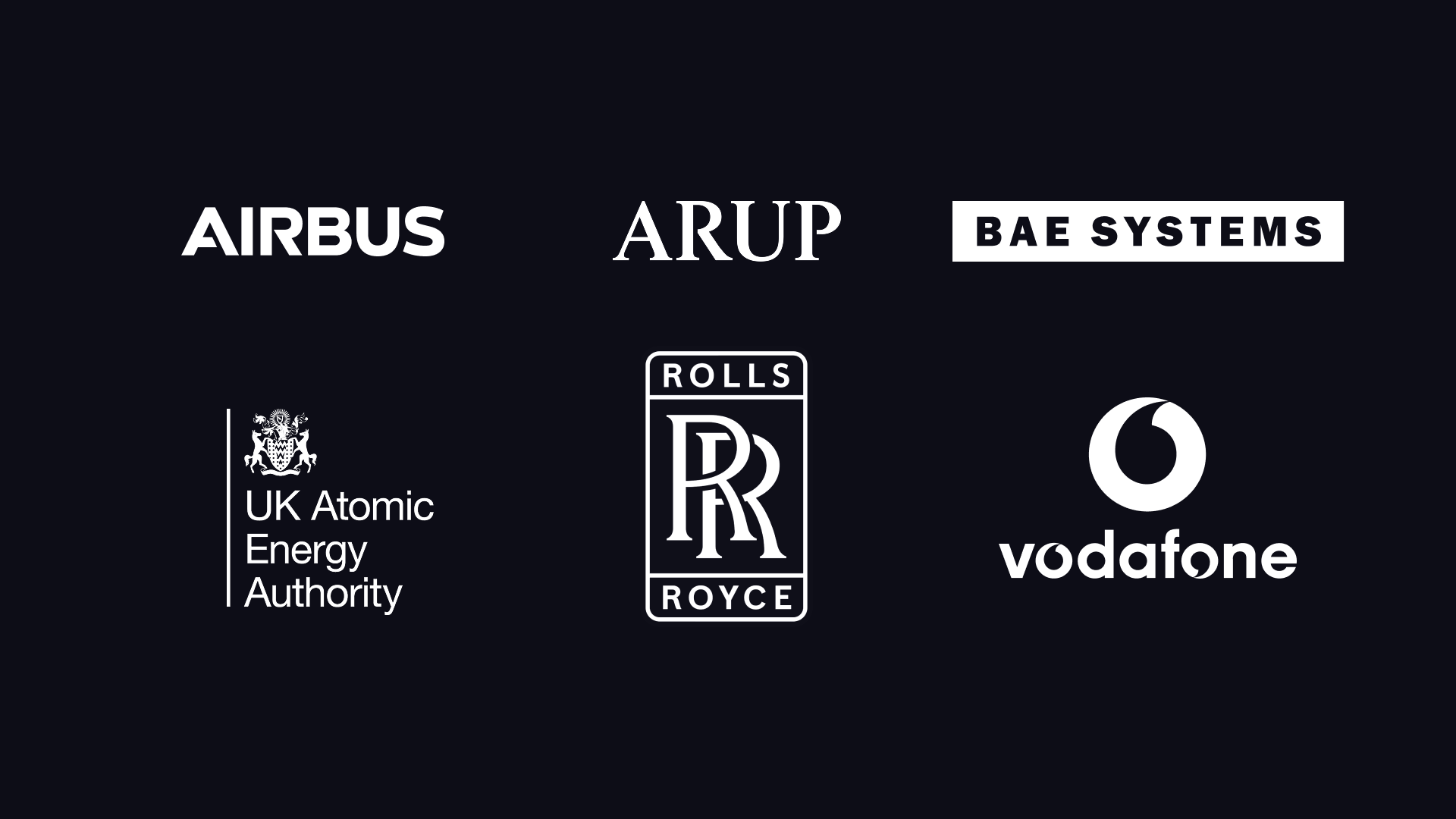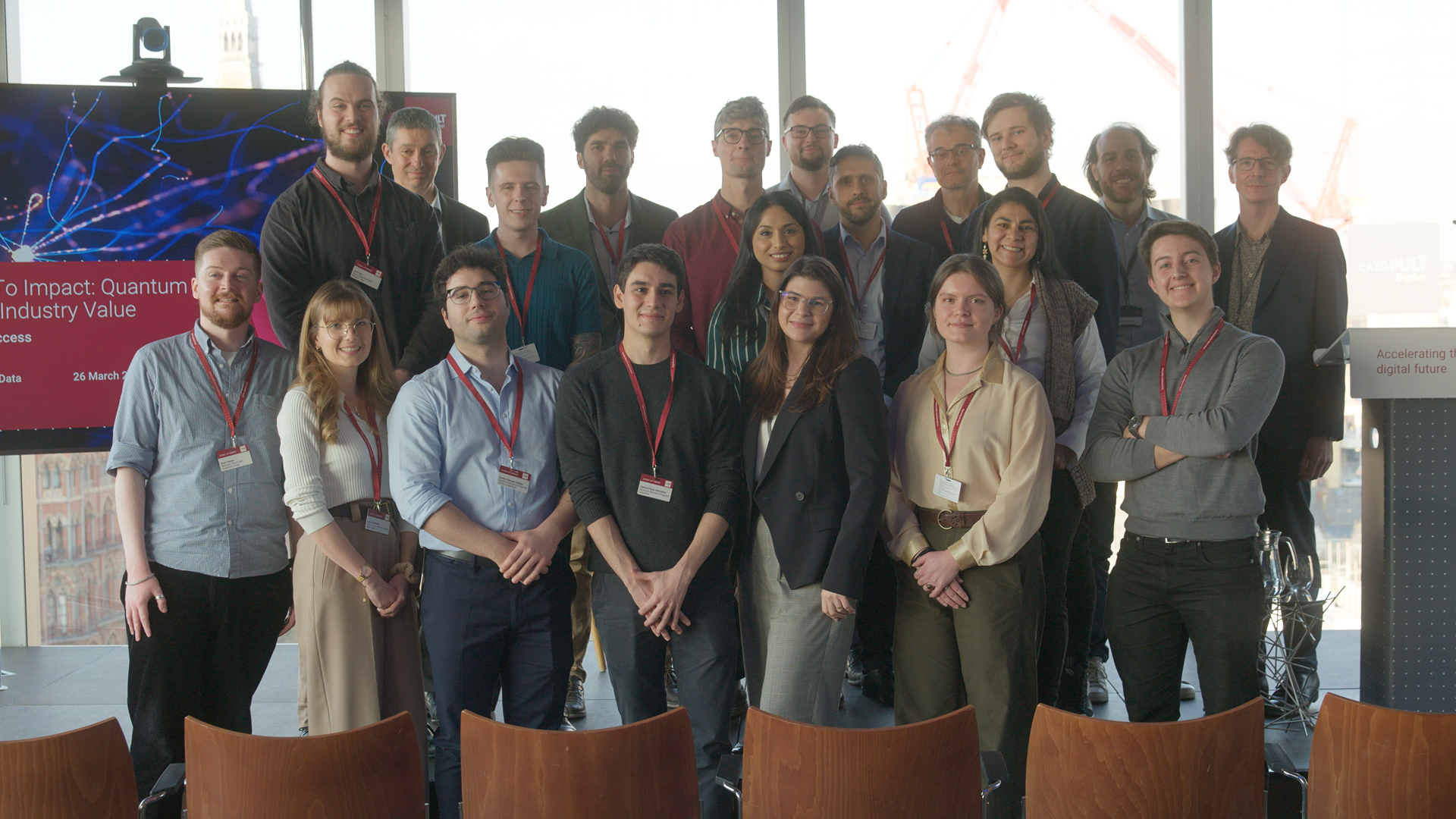Preparing diverse cohorts with Black Opal for Digital Catapult’s hybrid learning Quantum Technology Programme


The challenge
Digital Catapult’s Quantum innovation programme provides representatives from leading UK companies the opportunity to understand quantum concepts and trial practical applications of quantum computing to industry use cases over a six-month hybrid program. No prior knowledge of quantum computing was required, so Digital Catapult needed to find a way to ensure the cohort had the same level of understanding of quantum fundamentals before they started to trial their applications.
Impact
4.8
out of 5 average participant rating for the program, including Black Opal, which was also credited with raising participants' confidence in their quantum computing abilities from 3.1 to 4.2 out of 5 by the end of the course.
The outcome
Digital Catapult selected Black Opal to deliver the introductory quantum computing course components as online, self-paced training that participants successfully completed ahead of in-person training. Learners loved Black Opal’s intuitive, visual mode of learning and the ability to fit training around a busy work schedule. Instructors appreciated the time saved in being able to deploy a ready-made course that required zero administration.
Upskilling the UK quantum workforce
The Digital Catapult Quantum Technology Access Programme aims to raise awareness, educate end users, and foster industry partnerships to drive the future adoption and commercialisation of quantum computing. The program offers participants the opportunity to bridge the gap between quantum computing’s complex concepts and practical industry applications by gaining hands-on experience in solving real business use cases with a quantum computer.
19 leading companies, including Airbus, Rolls-Royce, Arup, and BAE Systems, worked with Digital Catapult and partners including Q-CTRL’s Black Opal to scale pioneering new solutions and accelerate the practical application of deep tech innovation across a range of sectors, including telecoms, defense, transport, and energy. This collaboration and convening of capabilities align with Digital Catapult’s goal to accelerate the development and deployment of open and future networks in the UK, through collaboration with Vodafone, as well as bolstering industrial supply chain resilience and decarbonisation too.

The Quantum Technology Access Programme is part of a wider Innovate UK Industry Strategy Challenge Fund (ISCF) funded project called Quantum Data Centre of the Future, which aims to embed a quantum computer within a classical data centre to explore real-world access to quantum technology.
Making quantum computing accessible to all
Before participants could advance to the point of running quantum optimisation and quantum machine learning use cases, they first needed education and training on the fundamentals of quantum computing. The program required no prior knowledge of quantum computing, so Digital Catapult needed a way to bring the cohort, who ranged from quantum beginners to university lecturers, up to the same level. Digital Catapult selected Q-CTRL’s Black Opal to deliver the introductory training, so the participants could gain understanding and develop their intuition for quantum concepts.
“The easy-to-use, intuitive Black Opal tool allowed our Quantum Technology Access Programme participants to quickly get up to speed with quantum computing, ready to trial their real-life business use cases. There was also some great material for participants who were curious to learn more about advanced topics.” Daniel Goldsmith, Senior Quantum Computing Consultant at Digital Catapult
Delivering hybrid quantum training with Black Opal
The Black Opal Quantum Fundamentals course provided by program partner Q-CTRL enabled participants to understand key quantum computing concepts such as qubits, superposition, and entanglement, providing a solid foundation for the experimentation phase of the program. The remote course suited participants' learning styles and avoided conflicts with busy calendars, and program coordinators found it very easy to manage access to Black Opal and track participant progress.
In addition to the self-driven learning style of Black Opal, Q-CTRL also delivered a series of bespoke in-person masterclasses. The sessions were designed to complement the participants’ new understanding of noise and control from Black Opal with presentations showcasing what can be achieved with Q-CTRL’s world-leading quantum infrastructure software, which expands the utility of today’s quantum computers with powerful control design and hardware automation.
Enhancing participant outcomes
Starting with Black Opal’s introductory course, every participant ultimately completed the entire Quantum Technology Access Programme course, culminating in a capstone presentation to describe their work to an audience of peers, businesses, academics, and representatives from government, showcasing a wide range of use cases relevant to business.
Surveyed after the course, participants rated their overall experience with the program at 4.8 out of 5. In particular, Black Opal was rated 4.3 out of 5 for usefulness and relevance as a particular strength, as well as directly contributing to participant confidence in working with quantum computing, which improved from an average of 3.1 out of 5 halfway through the course to 4.2 out of 5 by course completion.
“The Black Opal training has provided insight into understanding quantum computing and its differences from classical binary operations. The use of the Bloch Sphere for visualising superposition and the construction of sequences of gates to operate upon qubits has proved very insightful.” Course participant









